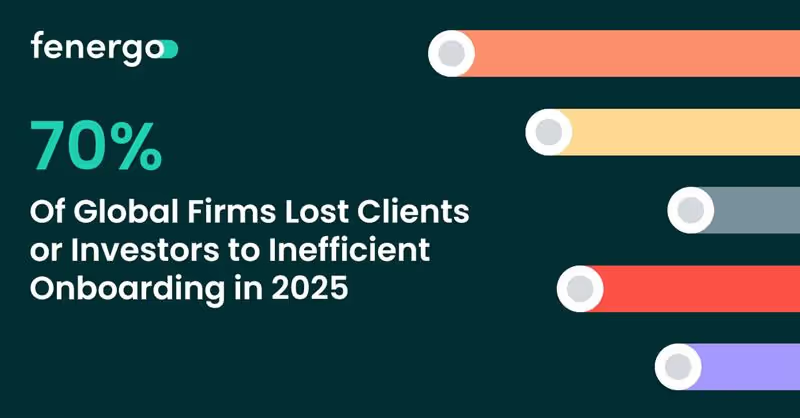Global Fincrime Operations Trends in 2025
.avif)
Industry Trends at a Glance
Respondents for our survey were representatives of financial institutions, split between investment banks, commercial banks, corporate banks, asset managers, and asset servicers. Our survey covered three key economies - the UK, the US, and Singapore - with responses from 600 senior decision-makers working in risk, compliance, and operations roles.
Financial Crime Drives AI Investment
Tackling financial crime has become the number one priority for AI investment in 2025, as financial institutions (FIs) seek to mitigate the threat of increasingly sophisticated crime and tightening regulations.
This reflects the global trend of rising sanctions measures triggered by geopolitical tensions and firms are under pressure to bolster systems and processes to remain compliant.
Adoption of Artificial Intelligence is Now Mainstream
In a recent study of UK and US FIs by Fenergo in collaboration with Chartis Research, 47% are already using AI in compliance operations and six percent are using agentic AI.
In this survey, most firms reported that their staff are using some form of AI to automate labor-intensive AML/KYC processes.
Automation of AML/KYC Processes
FIs complete tens of thousands of periodic reviews on average per year to keep on top of financial crime risk and client risk profile changes. This emphasizes the scale of the periodic review workload weighing on a large proportion of FIs today.
Clunky Onboarding is Costing Billions in Lost Revenue
Our research shows that financial institutions are spending tens, even hundreds of millions on average on financial crime operations, yet lingering inefficiencies in client onboarding are driving clients away.
Across the three economies we studied, the number of FIs report losing clients due to slow onboarding processes rose slightly from the 63% reported across sectors in 2024, and way above the 2023 average of 48%.
Operational Costs for AML/KYC remain high
Financial institutions globally are spending large sums of money on KYC/AML activities. Much of this cost is attributed to antiquated and manual systems and ways of working that frustrate employees and clients alike.
According to a report by McKinsey, banks typically assign 10-15% of their total full-time workforce to KYC and AML alone.
To Build or To Buy? That is The Question
When it comes to technology adoption within compliance, the most common set up is the in-house model, with more than a third opting to fully build and maintain solutions in-house.
Firms that either use a business process management (BPM) solution, rely on in-house, or adopt a hybrid approach cite high maintenance costs, complexity of use, and regulatory adaptability as key challenges. Only one percent of these firms globally reported no tech stack challenges.
Solutions Tailored to Your Organization’s Operational Challenges
Other Resources

Global Financial Institutions Struggle with Rising Client Losses and Compliance Costs as AI Adoption Increases

Agentic AI in Compliance: From Concept to Operational Reality
In this groundbreaking report, Fenergo and Chartis Research explore the emergence of Agentic AI—autonomous, goal-driven AI systems—and intelligent automation as key enablers of scalable, proactive compliance.

Global KYC Trends in 2024 for Banking
This global research report of over 450 C-suite execs at corporate & institutional banks and commercial banks investigates KYC functions in 2024.

